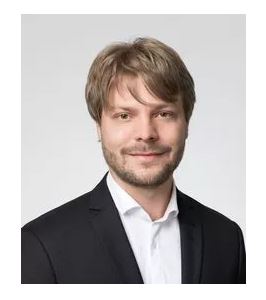 The EU awards six ERC Starting Grants to researchers at the Technical University of Munich — one of them is e-conversion expert Christopher J. Stein, Professor of Theoretical Chemistry at the TUM School of Natural Sciences. His research project addresses the following question: One of the greatest challenges in climate protection is reducing the concentration of the greenhouse gas CO₂ in the atmosphere. A particularly promising approach would be to convert CO₂ emissions from industry or transportation into useful substances through chemical processes – for example, directly into synthetic fuels or environmentally friendly base materials for plastics production. Such transformations require suitable catalysts, meaning substances that are essential for accelerating these chemical reactions. Today, the search for promising new catalysts largely relies on advanced computer simulations. However, current methods often represent real conditions only in a highly simplified way, which frequently leads to costly failed attempts. In the HeliECat project, Prof. Christopher J. Stein aims to make these simulations significantly more realistic by combining quantum chemical models with artificial intelligence. This should make it possible to predict the performance of catalysts far more reliably – an important step toward more effective climate protection.
The EU awards six ERC Starting Grants to researchers at the Technical University of Munich — one of them is e-conversion expert Christopher J. Stein, Professor of Theoretical Chemistry at the TUM School of Natural Sciences. His research project addresses the following question: One of the greatest challenges in climate protection is reducing the concentration of the greenhouse gas CO₂ in the atmosphere. A particularly promising approach would be to convert CO₂ emissions from industry or transportation into useful substances through chemical processes – for example, directly into synthetic fuels or environmentally friendly base materials for plastics production. Such transformations require suitable catalysts, meaning substances that are essential for accelerating these chemical reactions. Today, the search for promising new catalysts largely relies on advanced computer simulations. However, current methods often represent real conditions only in a highly simplified way, which frequently leads to costly failed attempts. In the HeliECat project, Prof. Christopher J. Stein aims to make these simulations significantly more realistic by combining quantum chemical models with artificial intelligence. This should make it possible to predict the performance of catalysts far more reliably – an important step toward more effective climate protection.
Since 2007, researchers at TUM have secured a total of 254 ERC Grants. These grants are awarded annually by the European Research Council in various categories. Starting Grants support outstanding researchers in the early stages of their careers and are endowed with up to 1.5 million euros.
